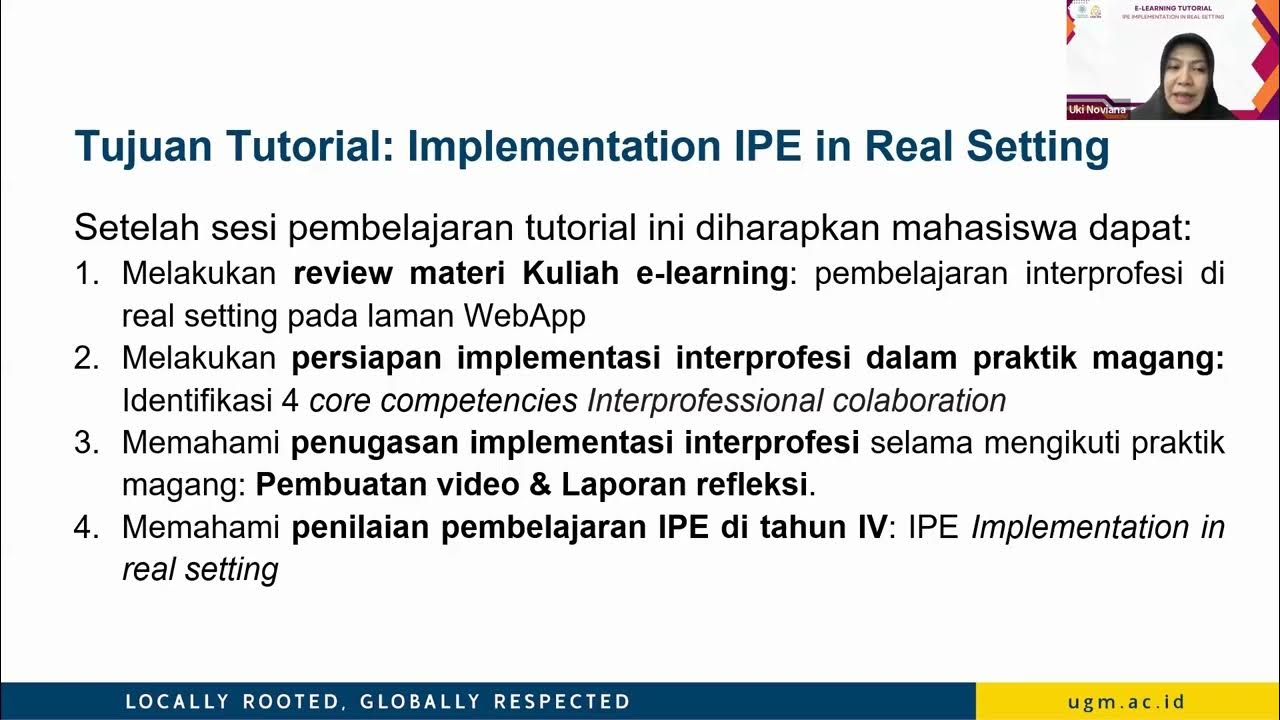Introduction to interprofessional collaboration and interprofessional education
Summary
TLDRThis video discusses the significance of interprofessional collaboration (IPC) and interprofessional education (IPE) in healthcare. It highlights the evolution from individual care to a collaborative approach necessary for addressing the complex needs of modern patients. With rising life expectancy and multi-morbidity becoming common, IPC is essential for enhancing patient outcomes and job satisfaction among healthcare professionals. IPE prepares future practitioners to work effectively within diverse teams, focusing on key areas such as professional identity and interprofessional workflow. Ultimately, this transformation in healthcare education and practice aims to improve the quality of care delivered to patients.
Takeaways
- 😀 IPC (Interprofessional Collaboration) is essential for effective patient care in modern healthcare settings.
- 👩⚕️ IPE (Interprofessional Education) trains healthcare professionals to work collaboratively.
- 👵 As populations age and chronic diseases increase, the need for multiple healthcare providers per patient has grown.
- 💡 Technological advancements have diversified patient care needs and demands.
- 🏥 Traditional solo practice is outdated; teamwork among healthcare professionals is now the norm.
- 🔄 IPC contributes to improved patient outcomes, safety, and job satisfaction among healthcare workers.
- 📚 IPE encourages learning from and about different healthcare professions to foster collaboration.
- 🔍 Students form a professional identity within their community of practice while learning to work in a broader landscape of practice.
- 📊 Understanding interprofessional workflow is key to navigating collaborative healthcare environments.
- 🏗️ A supportive organizational culture is crucial for effective IPC and quality patient care.
Q & A
What is interprofessional collaboration (IPC)?
-IPC is the concept of different healthcare professionals working together to provide care for patients, which has become essential due to the complexity of modern healthcare.
Why is interprofessional education (IPE) important?
-IPE is important because it prepares healthcare students and professionals to collaborate effectively in diverse teams, enhancing patient outcomes and job satisfaction.
How has the healthcare landscape changed over time?
-The healthcare landscape has changed due to improved life expectancy, increased prevalence of multiple diseases in patients, and advancements in technology and diagnostics.
What role does IPC play in patient care?
-IPC contributes to better patient outcomes, increased efficacy and safety of care, as well as greater sustainability and job satisfaction for healthcare professionals.
What are the main priorities of interprofessional education (IPE)?
-The main priorities of IPE include developing professional identity, interprofessional identity, interprofessional workflow, and understanding interprofessional organization.
What is meant by professional identity in the context of IPE?
-Professional identity refers to how a student learns about their own professional role and the type of healthcare professional they aspire to become within their community of practice.
How does interprofessional identity differ from professional identity?
-Interprofessional identity involves understanding how one's professional role relates to the roles of other healthcare professionals in a collaborative environment.
What does interprofessional workflow entail?
-Interprofessional workflow involves learning how to navigate and collaborate within a landscape of practice with various healthcare professionals.
Why is it no longer feasible for healthcare professionals to work in solitude?
-It is no longer feasible for healthcare professionals to work in solitude because the complexity of patient care now requires input and expertise from multiple disciplines.
What conditions are necessary for effective interprofessional collaboration?
-Effective interprofessional collaboration requires good organization, proper infrastructure, a supportive working culture, and sufficient time for professionals to collaborate.
Outlines

This section is available to paid users only. Please upgrade to access this part.
Upgrade NowMindmap

This section is available to paid users only. Please upgrade to access this part.
Upgrade NowKeywords

This section is available to paid users only. Please upgrade to access this part.
Upgrade NowHighlights

This section is available to paid users only. Please upgrade to access this part.
Upgrade NowTranscripts

This section is available to paid users only. Please upgrade to access this part.
Upgrade NowBrowse More Related Video
5.0 / 5 (0 votes)





